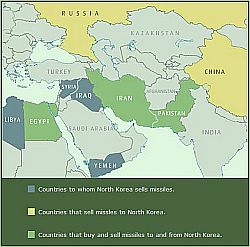Although Israel’s Netanyahu and the 47 Senate Republicans who signed Tom Cotton’s letter to Iran are suffering badly in public opinion after their most recent foot-stomping over a potential P5+1 deal on Iran’s nuclear technology, there is still a genuine concern that Republicans in Washington could muster support across the aisle from AIPAC-besotted Democrats to circumvent any deal. The concern is especially strong that there would be an effort to prevent lifting economic sanctions on Iran or even to impose new and even harsher sanctions after a deal is enacted.
Fortunately, despite the strong possibility that these war mongers could well get the legislation that they want put into law over a Presidential veto, unilateral sanctions from only the US would be likely to have little effect. To help drive home that point to the learning-challenged MEK-lovers, there is a new move to get the existing sanctions against Iran lifted once a P5+1 deal is reached. Louis Charbonneau reports for Reuters:
Major world powers have begun talks about a United Nations Security Council resolution to lift U.N. sanctions on Iran if a nuclear agreement is struck with Tehran, a step that could make it harder for the U.S. Congress to undo a deal, Western officials said.
/snip/
Some eight U.N. resolutions – four of them imposing sanctions – ban Iran from uranium enrichment and other sensitive atomic work and bar it from buying and selling atomic technology and anything linked to ballistic missiles. There is also a U.N. arms embargo.
There is a strong legal argument for this move:
U.S. Secretary of State John Kerry told Congress on Wednesday that an Iran nuclear deal would not be legally binding, meaning future U.S. presidents could decide not to implement it. That point was emphasized in an open letter by 47 Republican senators sent on Monday to Iran’s leaders asserting any deal could be discarded once President Barack Obama leaves office in January 2017.
But a Security Council resolution on a nuclear deal with Iran could be legally binding, say Western diplomatic officials. That could complicate and possibly undercut future attempts by Republicans in Washington to unravel an agreement.
This could be a lot of fun. The same crew who based their illegal invasion of Iraq on not needing a “permission slip from the UN” are likely to have a total meltdown if they are bypassed in this way.
While the Reuters article on first skimming almost seems to suggest that the Security Council move might involve removing all of the Iran-related resolutions, what seems most likely to me is that in the end, the current sanctions on Iran would be lifted (perhaps over a timetable from the agreement?) but that a number of prohibitions on weapons-related technology would remain in place. Also, any moves seem likely to be coupled with warnings that sanctions would return quickly in the event of any breach of the agreement by Iran.
Often lost in discussion of the sanctions on Iran is the devastating impact of these sanctions on Iranian citizens. The economy in Iran is in tatters, and people are suffering mightily from it. In February of last year, PBS actually touched on the effects for everyday citizens:
WILLIAM BRANGHAM: But as we saw on our recent visit, many Iranians believe sanctions have impacted them in ways beyond just their wallets.
At the Dr. Sapir Hospital in South Tehran, a Jewish charity hospital that cares for mostly poorer Iranians, we met Dr. Ciamak Moresadegh. He runs the hospital and also represents Iran’s Jewish community in the Iranian Parliament. Though his hospital got a donation of several hundred thousand dollars from the Rouhani government a few weeks after our visit, Moresadegh told us because of inflation and Iran’s sagging economy, which he blamed in part on sanctions, his hospital was deep in debt.
DR. CIAMAK MORESADEGH, Dr. Sapir Hospital: Since last year, our loss was something about $1 million per year.
WILLIAM BRANGHAM: One million U.S. dollars?
DR. CIAMAK MORESADEGH: Yes.
This year, we are more than two million U.S. dollar loss, because we want to protect the patients who cannot pay.
WILLIAM BRANGHAM: Dr. Moresadegh says those patients are the real victims. He says sanctions have hurt his ability to get crucial medicines for them. He says drugs for geriatric patients, those with multiple sclerosis and those with certain cancers, including childhood leukemia, are extremely hard to get.
Even though the U.S. Treasury Department, which oversees sanctions in the U.S., specifically allows for the sale of humanitarian goods like food and medicine, Moresadegh says that repeated warnings and crackdowns about violating sanctions like the ones announced just last week have scared many companies away from doing any business with Iran.
Sadly, this same piece by PBS gave Mark Dubowitz, one of the worst of the Iran war mongers, an outlet to brag about the utility of these sanctions, despite their devastating effects on ordinary citizens far removed from the government figures who ostensibly should be the targets of our actions:
MARK DUBOWITZ, Foundation for the Defense of Democracies: I think that sanctions always disproportionately impact the most disadvantaged people in a society.
WILLIAM BRANGHAM: Mark Dubowitz heads the Foundation for the Defense of Democracies in Washington, D.C. He believes that economic pain has served a purpose. He points out that Iran’s new president, Hassan Rouhani, was elected in large part to fix the economy and to reduce sanctions.
And while Iranian leaders deny it, Dubowitz argues it was the pain from sanctions that brought Iran to the negotiating table in Geneva over its nuclear program and Dubowitz argues sanctions should be increased.
MARK DUBOWITZ: The goal of these sanctions in Iran is to put Iran’s supreme leader at a fundamental choice between the survival of his regime and a nuclear weapon. And at the very least, those sanctions have now gotten the Iranians to the table. And I think most people agree that but for those tough sanctions, Iran’s leader wouldn’t be negotiating with the United States and our allies right now.
It is so sad that Dubowitz and his allies acknowledge the severe impact of sanctions on Iranian citizens but are now quickly moving their goalposts to try to keep sanctions in place even after a deal is reached.
![[original graphic: outsidethebeltway.com]](https://www.emptywheel.net/wp-content/uploads/2016/01/UkraineGasTransmission_outsidethebeltway.jpg)

![[image by Images Money via Flickr]](https://www.emptywheel.net/wp-content/uploads/2016/01/ChineseFortuneCookie_ImagesMoney-Flickr.jpg)

